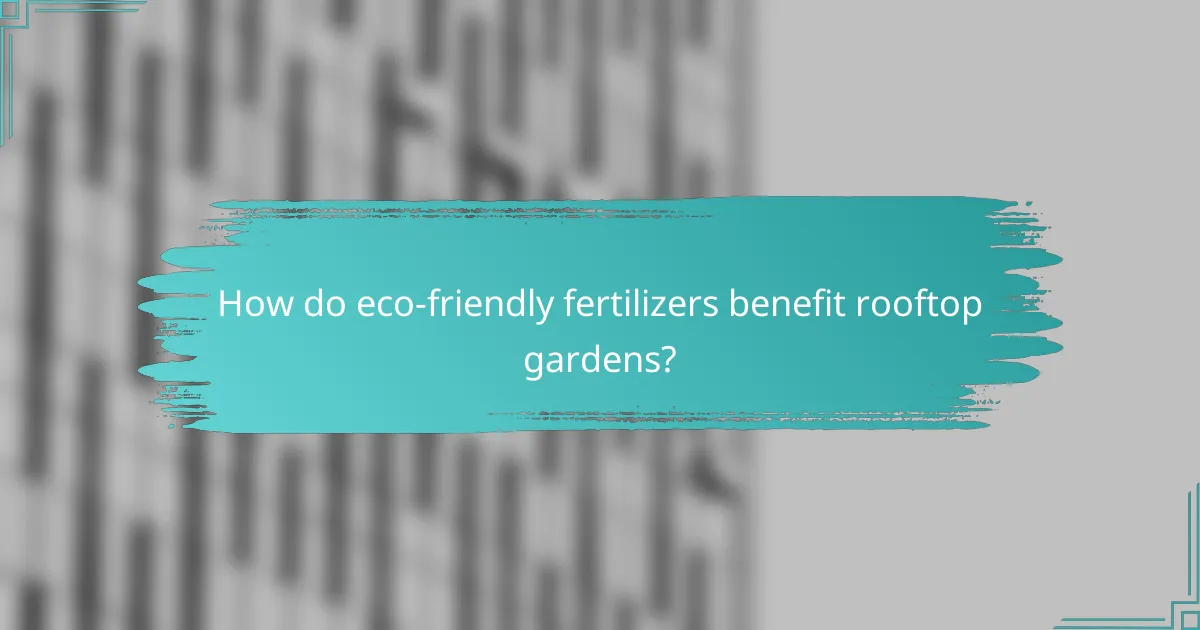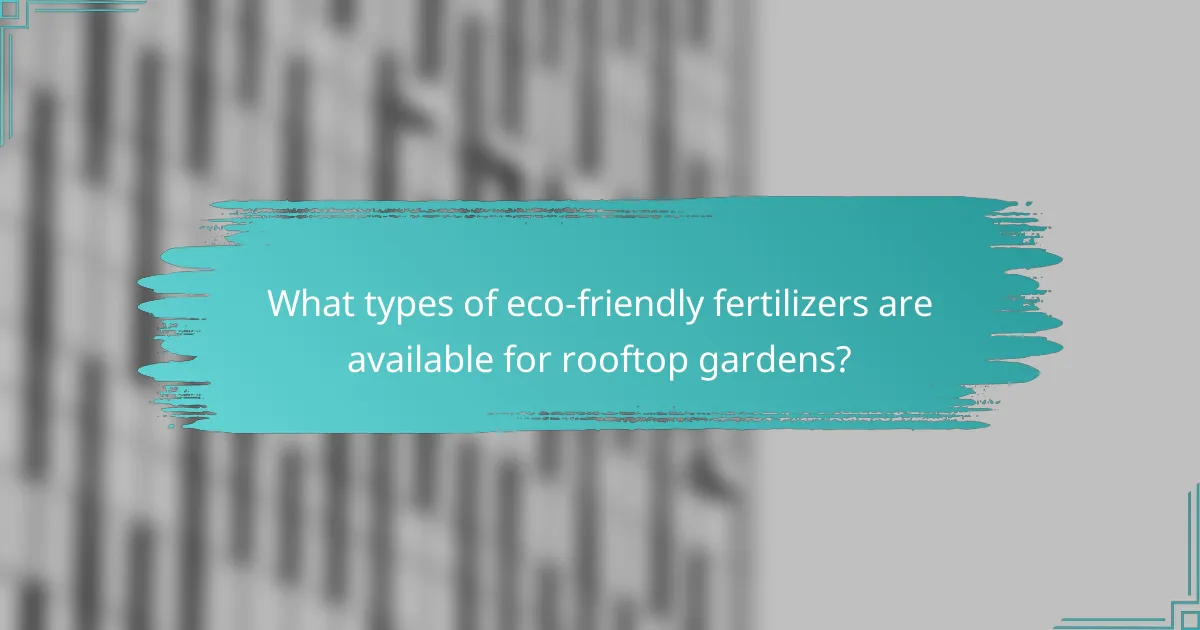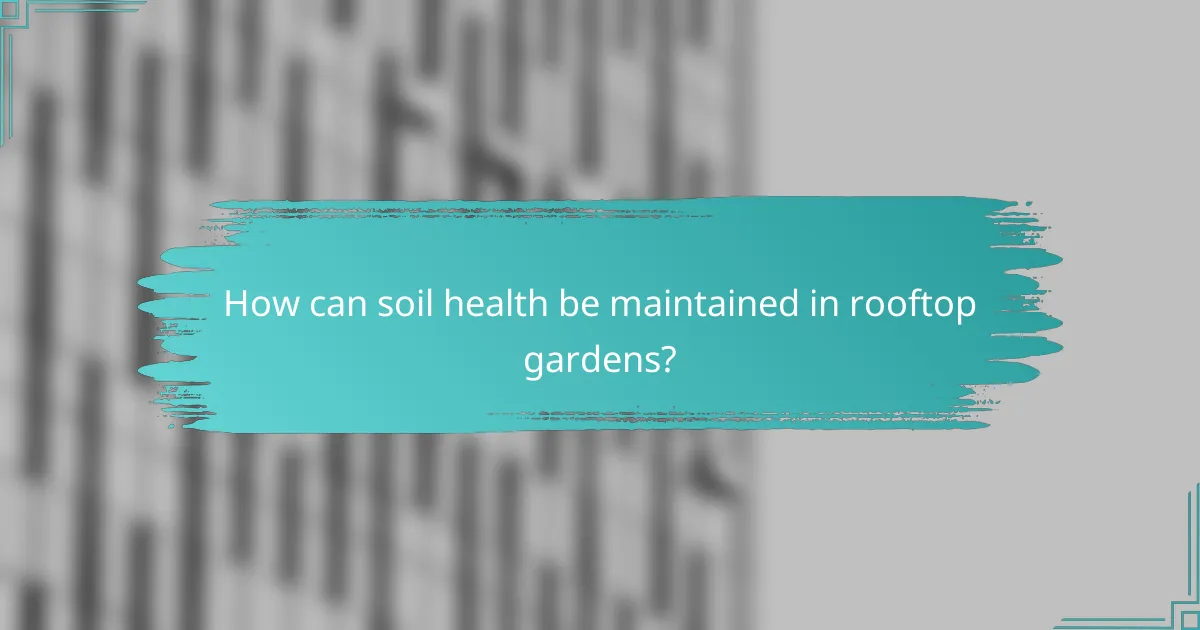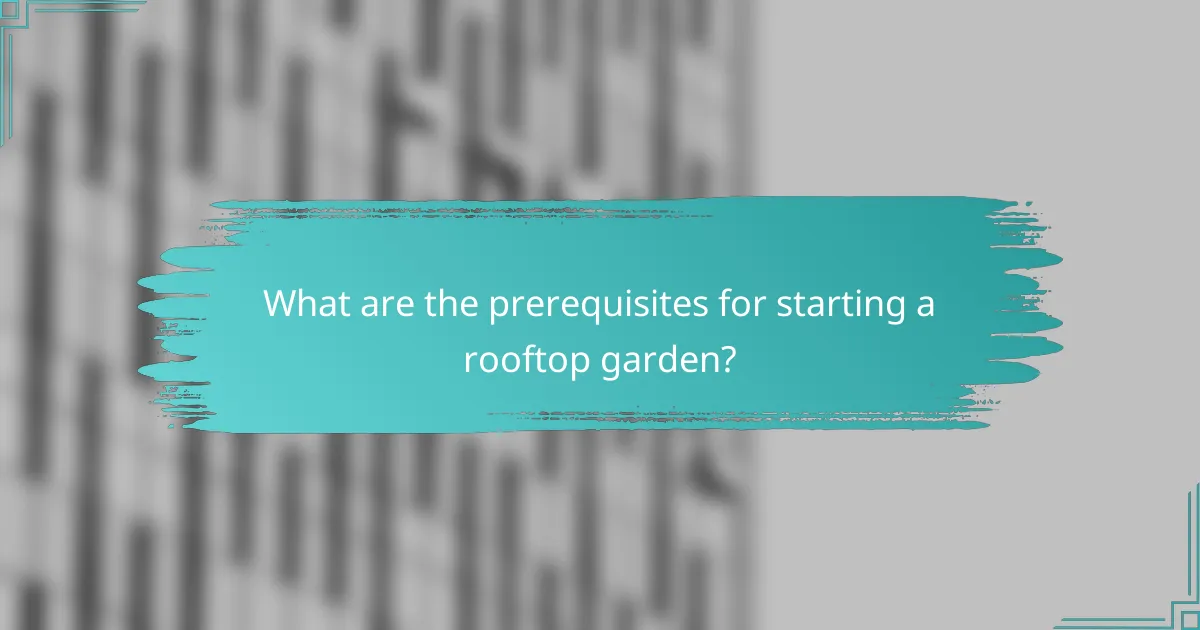Rooftop gardens are an innovative way to enhance urban green spaces, and utilizing eco-friendly fertilizers is key to their success. These natural fertilizers improve soil quality, promote healthier plant growth, and support sustainable gardening practices. By incorporating options like compost-based fertilizers and organic liquid fertilizers, gardeners can ensure their rooftop oasis thrives while minimizing environmental impact.

How do eco-friendly fertilizers benefit rooftop gardens?
Eco-friendly fertilizers enhance rooftop gardens by improving soil quality, promoting healthier plant growth, and minimizing negative environmental effects. These fertilizers often contain natural ingredients that enrich the soil and support sustainable gardening practices.
Improved soil health
Using eco-friendly fertilizers significantly boosts soil health by replenishing essential nutrients and improving soil structure. Organic matter from these fertilizers enhances microbial activity, which is crucial for nutrient cycling and soil fertility. Regular application can lead to a more balanced pH and better moisture retention, essential for rooftop garden sustainability.
Consider incorporating compost or worm castings as part of your eco-friendly fertilization strategy. These materials not only enrich the soil but also help in retaining moisture, which is vital for rooftop gardens that may face drying conditions.
Enhanced plant growth
Eco-friendly fertilizers promote enhanced plant growth by providing a steady supply of nutrients that plants can easily absorb. Unlike synthetic fertilizers, which can lead to nutrient runoff and soil degradation, organic options support gradual nutrient release, ensuring plants receive what they need over time.
For optimal results, choose fertilizers that are rich in nitrogen, phosphorus, and potassium, as these are key for robust growth. Regularly monitor your plants’ health and adjust your fertilization schedule based on their specific needs and growth stages.
Reduced environmental impact
Utilizing eco-friendly fertilizers in rooftop gardens reduces environmental impact by minimizing chemical runoff and promoting biodiversity. These fertilizers are less likely to leach into waterways, thus protecting local ecosystems from harmful pollutants.
To further lessen your environmental footprint, consider using locally sourced organic fertilizers. This not only supports local agriculture but also reduces transportation emissions, making your rooftop garden a more sustainable choice.

What types of eco-friendly fertilizers are available for rooftop gardens?
Rooftop gardens can benefit from various eco-friendly fertilizers that enhance soil health and promote plant growth. Key options include compost-based fertilizers, organic liquid fertilizers, and biochar amendments, each offering unique advantages for urban gardening.
Compost-based fertilizers
Compost-based fertilizers are created from decomposed organic matter, providing essential nutrients to plants while improving soil structure. They can be made from kitchen scraps, yard waste, or other organic materials, making them a sustainable choice for rooftop gardens.
To use compost effectively, apply a layer of compost about 2-3 inches thick on the soil surface or mix it into the soil before planting. Regularly turning the compost pile can speed up decomposition and enhance nutrient availability.
Organic liquid fertilizers
Organic liquid fertilizers, such as fish emulsion or seaweed extract, are nutrient-rich solutions that can be easily absorbed by plants. These fertilizers are often diluted with water and applied directly to the soil or as a foliar spray, providing a quick nutrient boost.
When using organic liquid fertilizers, follow the manufacturer’s instructions for dilution ratios and application frequency. Typically, applying every 2-4 weeks during the growing season can help maintain healthy plant growth.
Biochar amendments
Biochar is a form of charcoal produced from organic materials through pyrolysis, which enhances soil fertility and carbon sequestration. By adding biochar to rooftop garden soil, you can improve moisture retention and nutrient availability while reducing greenhouse gas emissions.
To incorporate biochar, mix it into the soil at a ratio of about 10-20% by volume. It’s beneficial to pre-soak biochar in a nutrient solution or compost tea before application to maximize its effectiveness in supporting plant growth.

How can soil health be maintained in rooftop gardens?
Maintaining soil health in rooftop gardens is essential for promoting plant growth and ensuring sustainability. This involves regular monitoring of soil quality, implementing practices that enhance fertility, and managing water efficiently.
Regular soil testing
Regular soil testing is crucial for understanding the nutrient composition and pH levels of your rooftop garden soil. Testing should be done at least once a year, or more frequently if you notice poor plant performance. This helps identify deficiencies or imbalances that can be corrected with appropriate amendments.
Soil testing kits are widely available and can provide insights into essential nutrients like nitrogen, phosphorus, and potassium. Many local agricultural extensions or garden centers offer testing services, often for a nominal fee.
Use of cover crops
Cover crops are an effective way to enhance soil health in rooftop gardens by preventing erosion, improving soil structure, and adding organic matter. Planting cover crops such as clover or vetch during the off-season can enrich the soil with nitrogen and other nutrients when they decompose.
Consider rotating cover crops annually to maximize benefits and reduce pest issues. This practice not only maintains soil fertility but also supports biodiversity in your garden ecosystem.
Proper drainage management
Proper drainage management is vital for maintaining soil health in rooftop gardens, as excess water can lead to root rot and nutrient leaching. Ensure that your garden has adequate drainage systems, such as gravel layers or drainage holes, to facilitate water flow and prevent waterlogging.
Regularly check for blockages in drainage systems and adjust the soil composition to enhance drainage, using materials like perlite or sand if necessary. This will help create a balanced environment for plant roots, promoting healthy growth.

What are the best practices for plant growth in rooftop gardens?
To ensure optimal plant growth in rooftop gardens, focus on selecting appropriate plant species, utilizing companion planting techniques, and maximizing sunlight exposure. These practices enhance soil health and promote a thriving ecosystem in limited space.
Choosing native plant species
Selecting native plant species is crucial for rooftop gardens as they are adapted to the local climate and soil conditions. Native plants typically require less water and maintenance, making them more sustainable options for urban environments.
Consider incorporating plants such as coneflowers, black-eyed Susans, or local herbs that flourish in your region. These species not only support local wildlife but also contribute to biodiversity, which is essential for a healthy garden ecosystem.
Implementing companion planting
Companion planting involves growing different plants in proximity for mutual benefits, such as pest control and improved growth. For example, pairing tomatoes with basil can enhance flavor and deter pests.
When planning your rooftop garden, consider combinations like carrots with onions or beans with corn. These pairings can lead to healthier plants and increased yields, making the most of your limited space.
Optimizing sunlight exposure
Maximizing sunlight exposure is vital for plant growth in rooftop gardens, as many urban areas have limited natural light. Position taller plants to the north or east to avoid shading shorter plants and ensure all receive adequate sunlight.
Monitor the sun patterns throughout the day and adjust your planting layout accordingly. Using reflective materials or light-colored surfaces can also help increase light availability for your plants.

How do rooftop gardens contribute to urban sustainability?
Rooftop gardens play a significant role in urban sustainability by enhancing the environment, improving air quality, and managing stormwater. They provide green spaces that help mitigate the negative impacts of urbanization, contributing to healthier cities.
Reduction of urban heat island effect
Rooftop gardens help lower the urban heat island effect by providing insulation and reducing surface temperatures. Vegetation absorbs sunlight and cools the air through evapotranspiration, which can decrease rooftop temperatures by several degrees Celsius compared to traditional surfaces.
Implementing a rooftop garden can lead to a noticeable reduction in energy costs for cooling buildings, especially during hot summer months. This makes them a practical choice for urban dwellers looking to enhance energy efficiency.
Improved air quality
Rooftop gardens contribute to improved air quality by filtering pollutants and absorbing carbon dioxide. Plants release oxygen and can capture particulate matter, which helps create a healthier urban atmosphere.
Incorporating a variety of plants can maximize these benefits, as different species have unique abilities to filter specific pollutants. Regular maintenance, such as pruning and replacing dead plants, ensures the garden remains effective in purifying the air.
Stormwater management
Rooftop gardens are effective in managing stormwater by absorbing rainwater and reducing runoff. This helps prevent flooding and decreases the burden on urban drainage systems during heavy rainfall.
By retaining water, these gardens can also promote groundwater recharge. It’s essential to design the garden with appropriate soil and drainage systems to optimize water retention and support plant health.

What are the prerequisites for starting a rooftop garden?
To start a rooftop garden, you need to assess the structural integrity of your building, ensure access to sunlight, and select appropriate plants. These factors are crucial for successful growth and sustainability.
Structural assessment of the rooftop
Before establishing a rooftop garden, conduct a thorough structural assessment to determine if your roof can support the weight of soil, plants, and water. Most rooftops can handle a load of around 15-20 pounds per square foot, but this can vary based on the building’s design and materials.
Engage a structural engineer if you are unsure about your roof’s capacity. They can provide insights into necessary reinforcements or modifications. Additionally, check local building codes and regulations regarding rooftop gardens to ensure compliance.
Consider the layout of your rooftop as well. Areas with direct sunlight are ideal for most plants, while shaded spots may require shade-tolerant species. Plan your garden layout to maximize both structural safety and plant health.
